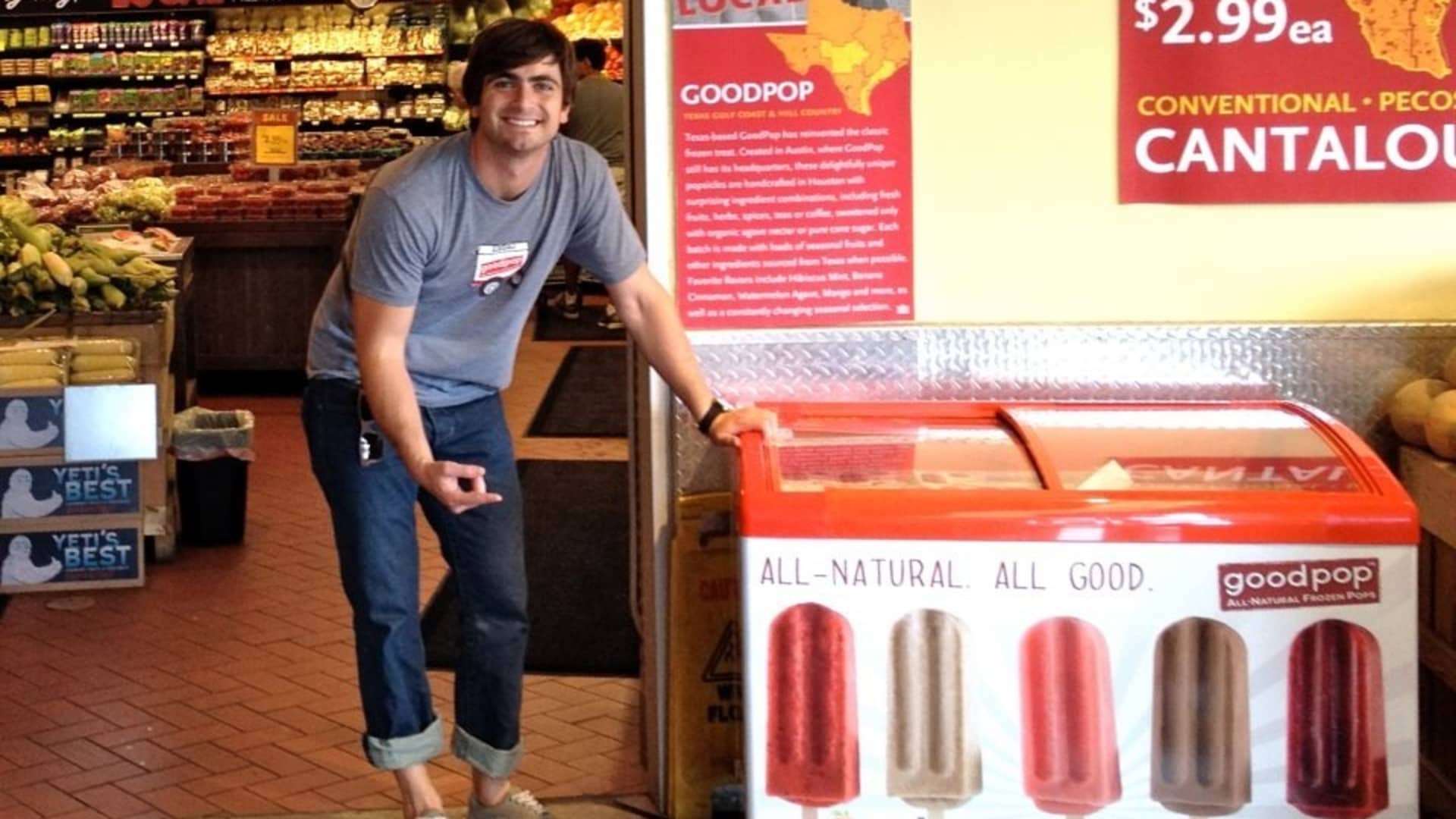
In college, he spent $3,500 to launch a popsicle business—now it brings in $63 million a year
How did your country report this? Share your view in the comments.
Diverging Reports Breakdown
In college, he spent $3,500 to launch a popsicle business—now it brings in $63 million a year
GoodPop is an Austin-based company that sells products in more than 10,000 locations across the U.S. GoodPop has been profitable nearly every year since its launch, with 2024 as an exception. Daniel Goetz spent years “driving a lot … running around all over Texas, making deliveries” He cut fruit and froze 80 popsicles per hour, by hand, in a local paleteria that let him use its kitchen after hours. “I just knew that we had this delicious pop with lower sugar, and there was nothing like it on the market,” says Goetz, 38, “I thought that this was going to kickstart [the business] and change everything” “I’m so fortunate to grow up in a family of entrepreneurs. But, at the same time, I knew that I needed to make my own mark on this world and do it on my own,” Goetz says, adding: “Any opportunity that I could to put these products in front of Austinites, to introduce them, I did”
A ‘cold, sloppy’ early mishap for GoodPop
Goetz’s family has a history of entrepreneurship: His great-grandfather immigrated to the U.S. from Russia over a century ago and “sold consigned ice out of a pushcart,” he says. That great-grandfather then founded a grocery supply business in Houston in 1923, which grew into an operation with multibillion-dollar annual revenue by the time Goetz’s family sold their interest in 2014. “I’m so fortunate to grow up in a family of entrepreneurs. But, at the same time, I knew that I needed to make my own mark on this world and do it on my own,” says Goetz. With GoodPop, he spent $3,500 — money he’d saved from a lawn-mowing business he started in middle school — on signage, a pushcart of his own and produce to make and sell his first popsicles. He sold them for $2 apiece at local music festivals and farmer’s markets, bought more ingredients with his proceeds, and spent three weeks making 18,000 popsicles to sell at the annual Austin City Limits music festival in October 2009, he says. Then, rain turned the festival into a “mud fest,” he says. “It [was] a cold, sloppy mess … and out of those 18,000 pops, we sold four. I thought that this was going to kickstart [the business] and change everything, and we were left with 17,996 pops that I had to figure out what to do with and [almost] no money.” Goetz rushed the popsicles to a cold storage facility, paid $50 per month to store them and returned to school “dejected,” he says. A few months later, he cut his losses and handed them out for free at Austin’s annual SXSW festival.
Long hours and total exhaustion to build a business
After graduating college, Goetz couldn’t shake the GoodPop idea, he says. But the only remaining piece of the company was its website — so Goetz put his marketing skills to work, maximizing the site’s search engine optimization (SEO). Soon, “when you searched for organic frozen pops or organic popsicles, because none existed at that time, GoodPop was actually the No. 1 result,” he says. A week later, a marketing agency called Manifold asked GoodPop for a price quote for 50,000 organic popsicles with custom packaging. Goetz put in a bid and won it: Manifold paid him $80,000 for the job, giving him half the money up front to cover his production costs. “I hand-stamped every single pop stick,” says Goetz. The second half of the payment was pure profit for Goetz, putting GoodPop back in business. Luck similarly gave GoodPop its first major retail partner: Goetz’s roommate played recreational soccer with a Whole Foods employee, who put him in touch with a representative from the grocery chain’s Southwest regional office.
Daniel Goetz poses next to a GoodPop display at a Whole Foods Market in 2012. Source: GoodPop
Goetz brought some samples and got the representative’s approval to pitch buyers at individual Whole Foods stores. As he won buyers over — building relationships and shaking hands, he says — he spent four years sleeping on friends’ couches, staying up late to make popsicles and getting up early to deliver them to Whole Foods locations and other, smaller grocery stores by 6 a.m. “I put 212,000 miles on my Toyota, running around all over Texas, making deliveries for years,” says Goetz, adding that the hands-on dedication often left him “completely exhausted.” By 2014, GoodPop’s products sold well enough for Whole Foods to take over distribution for the Southwest and Rocky Mountain regions, meaning Goetz no longer had to make the deliveries himself. That year, GoodPop brought in $1.3 million in gross sales, the company says. In 2017, Whole Foods expanded GoodPop to national distribution. The brand got into Walmart and Costco the following year.
‘Doubling down’ amid big competition
